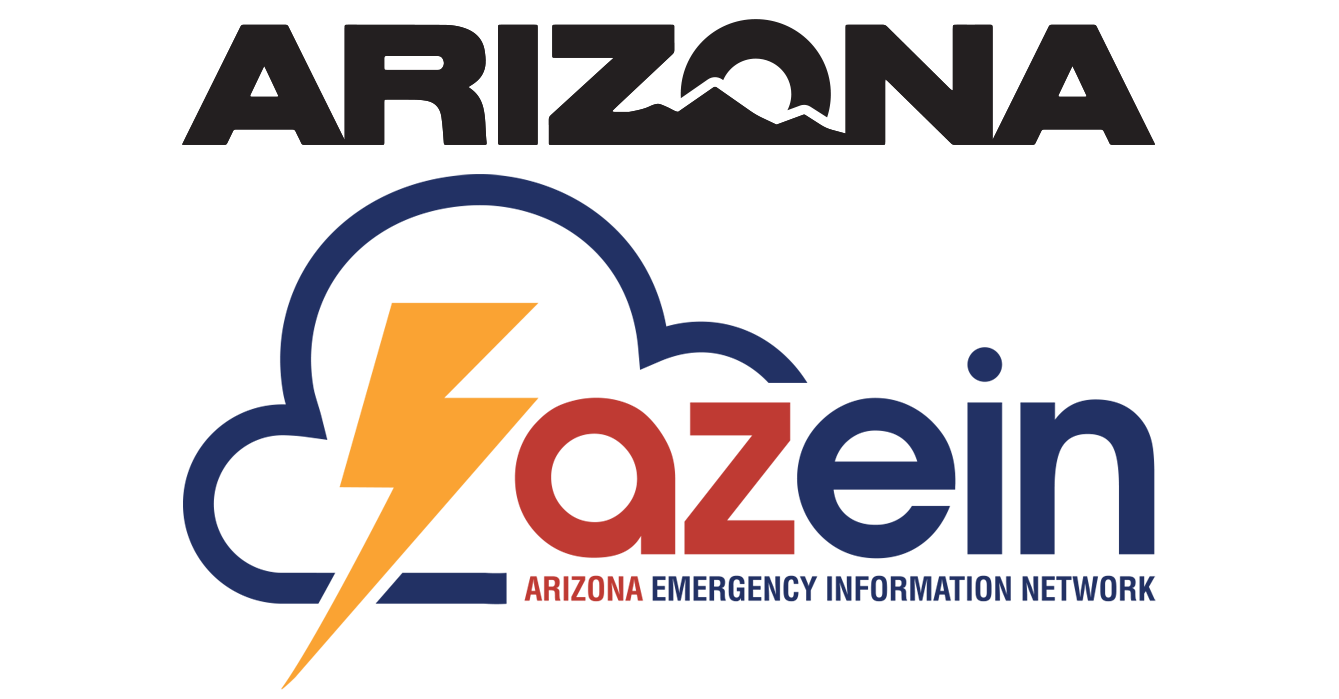Extreme Heat
Extreme heat often results in the highest number of deaths each year among all weather-related hazards. Extreme heat is defined as a period of at least 2-3 days of high heat with temperatures above 90 degrees. The average temperature in Phoenix in July, according to The Weather Channel, is 106 degrees. Heat disorders strike when people spend too much time in the heat or overexert themselves. Older adults, young children, and people who are sick, overweight or have an underlying health condition are more susceptible to heat-related illness.
People living in urban areas may be at greater risk from the effects of an extended heat wave than those living in rural areas. Asphalt and concrete store heat longer and release heat more slowly at night, producing higher nighttime temperatures. This is known as the "urban heat island effect." Extreme heat video.
BEFORE
- Build an emergency go kit and make a family communication plan.
- Check on family, friends and neighbors who are at higher risk for heat-related illness, do not have air conditioning and/or spend much of their time alone.
- Eat well-balanced, light and regular meals. Avoid using salt tablets unless directed to do so by a physician.
- Keep your home cool by doing the following:
- Check air-conditioning ducts for proper insulation. Weather-strip doors and window sills to keep cool air in. Cover windows that receive morning or afternoon sun with drapes, shades, awnings, or louvers. (Outdoor awnings or louvers can reduce the heat that enters a home by up to 80 percent.)
- Listen to local weather forecasts and stay aware of upcoming temperature changes.
- Know the signs of heat-related illness and the ways to respond to it:
- HEAT CRAMPS
- Signs: Muscle pains or spasms in the stomach, arms, or legs
- Actions: Go to a cooler location. Remove excess clothing. Take sips of cool sports drinks with salt and sugar. Get medical help if cramps last more than an hour.
- HEAT EXHAUSTION
- Signs: Heavy sweating, paleness, muscle cramps, tiredness, weakness, dizziness, headache, nausea or vomiting, or fainting
- Actions: Go to an air-conditioned place and lie down. Loosen or remove clothing. Take a cool bath. Take sips of cool sports drinks with salt and sugar. Get medical help if symptoms get worse or last more than an hour.
- HEAT STROKE
- Signs: Extremely high body temperature (above 103 degrees) taken orally; red, hot, and dry skin with no sweat; rapid, strong pulse; dizziness; confusion; or unconsciousness
- Actions: Call 911 or get the person to a hospital immediately. Cool down with whatever methods are available until medical help arrives.
- HEAT CRAMPS
Read More
DURING
- Stay indoors as much as possible and limit exposure to the sun.
- Find places in your community where you can go to get cool.
- Drink water; even if you do not feel thirsty. Avoid drinks with caffeine.
- Persons who have epilepsy or heart, kidney, or liver disease; are on fluid-restricted diets; or have a problem with fluid retention should consult a doctor before increasing liquid intake.
- Spend the warmest part of the day inside at home or a public building (e.g., libraries, schools, movie theaters, shopping malls, and other community facilities).
- Protect face and head by wearing a wide-brimmed hat.
- Avoid strenuous work during the warmest part of the day. Use a buddy system when working in extreme heat, and take frequent breaks.
- Avoid extreme temperature changes. Postpone outdoor games and activities.
- Check on your animals frequently to ensure that they are not suffering from the heat. Go to a designated public shelter if your home loses power during periods of extreme heat.
Read More
AFTER
- Tune to local TV and radio for National Weather Service (NWS) watches, warnings and advisories.
Read More
RESOURCES
- Heat.gov - National Integrated Heat Health Information System
- NOAA Heat Safety Tips and Resources
- Arizona Weather Dashboard
- National Weather Service
- Centers for Disease Control and Prevention
- Ready.gov
- Heat Relief Regional Network for Maricopa and Pinal Counties
- National Weather Service Arizona Heat Awareness website (English)
- National Weather Service Arizona Heat Awareness website (Spanish)
- Arizona Department of Health Services
- Arizona Environmental Public Health Tracker
- Arizona Department of Economic Security Utility Assistance (English)
- Arizona Department of Economic Security Utility Assistance (Spanish)
Read More
(source: Ready.gov)

